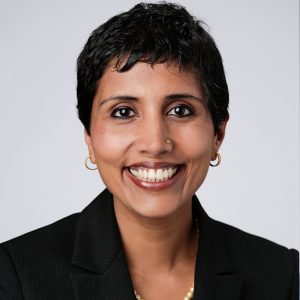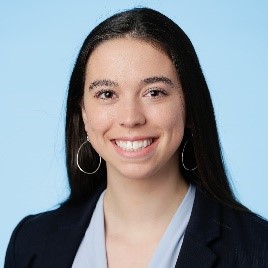Board of Mentors Give Scholars Advice
The Kenan Scholars class of 2022 had the opportunity to speak with several inspiring guest speakers on Friday, Oct. 16, 2020, via a panel on Zoom. Julie Curd, director of client services at UIA Investment Management, Dr. Sreedhari Desai, associate professor at UNC Kenan-Flagler Business School and Jennie Orr, chief strategy and business officer at Camargo, joined students to share their valuable knowledge of the world of business.
Scholar Caroline Englert facilitated the conversation with the panel by asking the guest speakers seven questions before scholars and mentors regrouped into breakout rooms. Her questions aimed at getting advice from the panel on issues such as cross-section collaboration, mentorship, research and social justice.
Having just completed internships and research opportunities in the public sector, Englert asked the panel how to leverage experience in the public sector when trying to enter the private sector. Curd, who started out working for nonprofits, said the key skill she was able to translate from the public sector to the private sector was cultivating relationships. Curd suggests finding “overlapping and common themes in the area that you are pursuing” and leveraging those themes. Orr added that recruiters are also looking beyond a student’s skill set to see if students have potential. “That mindset for growth and learning and energy is also something that is going to translate really positively,” Orr said.
Englert also asked what they, as mentors, look for when taking on a mentee. Dr. Desai emphasized that she has three P’s that she looks for: passion, preparedness, and perseverance. “I look for passion. How passionate is this individual about the topic? Secondly, I look for preparedness. Before even meeting with me, how much background work and legwork have they actually conducted? The third P is perseverance. Are they able to project to me that they would in fact be able to persevere on this topic and stick it out for the entire year? If I feel the individual has these three P’s, I definitely want to take them on,” Dr. Desai explained. Curd also advised students to keep an open mind when looking for a mentor. “I would caution against focusing on only certain industries or specific positions because that really limits your opportunities to learn, to grow your network, to gain a sense of how broad the playing field is,” Curd said.
As seniors, Kenan Scholars have to complete a research requirement by completing a research project with a professor or writing an honors thesis. Englert asked the panel to provide some insight into the world of research both at UNC and in the business environment. Orr said that she conducts research every day in her work. “Any experience that you’re passionate about and committed to that allows you to frame the question, gather the data, talk about the conclusions and the implications of those conclusions is going to be something that is highly leverageable as you think about a private sector career,” Orr said. Dr. Desai explained the pros and cons of conducting research with a professor and writing an honors thesis. She explained that conducting research with a professor saves the student the hassle of finding a research question and it is also easily presentable if you are aiming to find a job in the research market. On the other hand, an honors thesis is better if you are going to go to graduate school as it is seen as more independent work.
As a program that is dedicated to ensuring the private sector is serving the public good, Englert asked the panelists how students should, as future business leaders, implement and advocate for safe, responsible, and equitable business practices. Curd encouraged students to ask about company culture and DEI statements as they start to apply for jobs. “I would try to get beyond that language [in DEI statements] and ask in every interview, ‘What’s behind those words?’” Dr. Desai said that as business leaders, “You need to actively work on creating a psychologically safe environment where people feel comfortable to speak up,” and then create measurements for people to provide feedback on the work environment. Lastly, Orr said that students should look first at themselves to understand their own shortcomings and then put measures in place to fix those shortcomings.
The panelists then answered more specific questions in breakout rooms. The event, which lasted an hour, presented the scholars with valuable advice. “I learned a lot about the best ways to reach out to potential mentors during this panel,” scholar Anna Manocha said. “This advice will be incredibly helpful as I move forward and partner with professors to assist with their research.”

